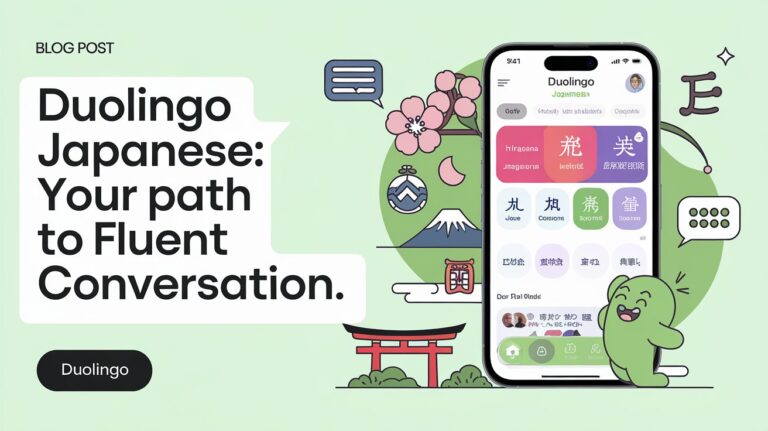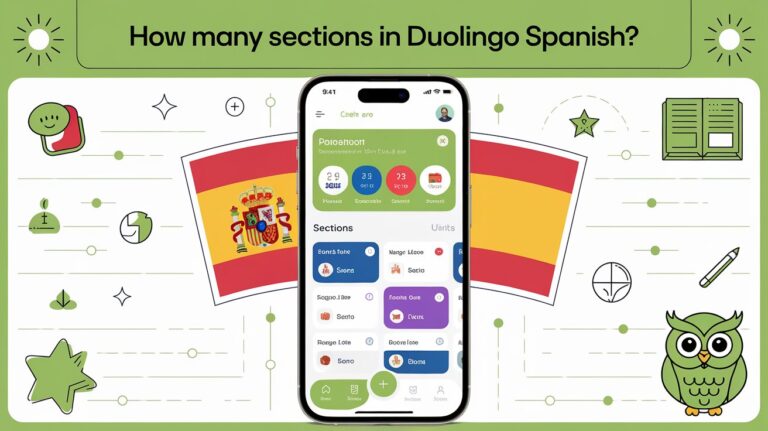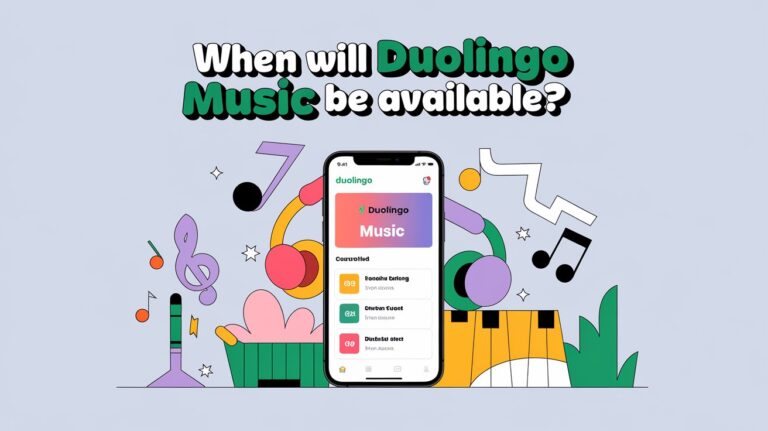Does Duolingo Have Cantonese: Language Course Availability Status

Duolingo is a top choice for language learners worldwide. It offers many language courses, but does it have Cantonese for English speakers? This guide will check if Duolingo has Cantonese, its special features, and other great resources for learning Cantonese.
Current Status of Cantonese on Duolingo Platform
Duolingo offers a Cantonese course, but it’s not for everyone. It’s mainly for Mandarin speakers who want to learn Cantonese using traditional Chinese characters. English speakers can’t access this course on the main Duolingo platform.
Limited Availability for Mandarin Speakers
Cantonese is a Chinese dialect with over 80 million speakers. It’s hard to teach because of its complex tones and differences from Mandarin. Duolingo’s Cantonese course came out in June 2022. It’s only on the Chinese version of the platform for Mandarin speakers.
Traditional Character Support
The Cantonese course uses traditional Chinese characters. This might be hard for English speakers to get used to. They usually see simplified characters. This approach helps Mandarin speakers but leaves out others.
Platform Restrictions
Duolingo has over 100 courses, but no Cantonese for English speakers. This shows that Duolingo focuses more on Mandarin. English speakers wanting to learn Cantonese need to look elsewhere for language courses.
Does Duolingo Have Cantonese for English Speakers
If you’re an English speaker wanting to learn Cantonese, you might be out of luck. Duolingo, a well-known app for learning languages, doesn’t have a Cantonese course. They focus more on languages with bigger user bases and higher demand.
Cantonese is a key Chinese dialect spoken mainly in Guangdong province, Hong Kong, and Macau. It’s different from Mandarin in how it sounds, its words, and grammar. Even though it’s important culturally, Cantonese is less known globally than Mandarin, China’s official language.
This difference shows in Duolingo’s choices. They offer more Mandarin courses than other Chinese dialects. If you want to learn cantonese online or cantonese lessons through Duolingo, you won’t find what you need. You might have to look elsewhere for learning cantonese online and cantonese lessons.
Unique Features of Cantonese Language
Cantonese is the main language in Hong Kong, Macau, and parts of Guangdong province. It has its own special features that make it different from Mandarin Chinese. One key feature is its unique tonal system, with six tones, unlike Mandarin’s four.
Six Tonal System
The Cantonese tonal system is vital for the language. Small changes in tone can change a word’s meaning. Learning these six tones is key for clear communication in Cantonese.
For example, “m4 goi1” (thank you) and “m4 hai6” (no) sound different. This shows how important tone is in Cantonese.
Regional Significance
Cantonese is deeply rooted in southern China’s culture and history. It’s the main language in the area. It plays a big role in Hong Kong, Macau, and Guangdong’s life, from food to music and movies.
Cantonese shows the region’s rich linguistic diversity. It also keeps ancient Chinese language traditions alive.
Cultural Heritage
Cantonese is more than just a language; it’s a part of southern China’s identity. It has greatly influenced pop culture, with Cantonese films, TV, and music loved worldwide. Learning Cantonese opens up a world of cultural richness and diversity in China.
Popular Alternatives to Duolingo for Cantonese
Even though Duolingo doesn’t have Cantonese, there are many great options for learning this dialect. Whether you’re just starting or you’re more advanced, these alternatives offer a variety of ways to learn Cantonese.
Clozemaster is a great choice for building your vocabulary and speaking skills. CantoneseClass101 is also highly recommended, with podcast-style lessons and lots of resources. Glossika helps improve listening and speaking by using native speaker audio.
Other platforms and apps worth checking out include:
- Ling, which offers interactive lessons with native speaker audio
- Drops, which focuses on building vocabulary with fun exercises
- Preply, where you can get 1-on-1 lessons with native Cantonese tutors starting at $10 per lesson
- Pimsleur, known for making you sound like a native speaker, but it’s a bit pricier
- Mango Languages, offering quick Cantonese lessons for $7.99 a month
- Memrise, with free features and a premium plan at $20 a month
With so many choices, you can find the perfect platform or app for your learning style and budget. This way, you can discover the beauty of the Cantonese language.
Clozemaster as Your Cantonese Learning Solution
Clozemaster is a great way to learn Cantonese. It uses context-based practice, similar to Duolingo. You fill in missing words in sentences. It’s available for over 50 languages, including Cantonese.
Interactive Sentence Practice
Clozemaster has lots of real-life sentences. You can learn Cantonese by seeing it in use. It makes learning fun by giving points for correct answers.
Difficulty Level Options
Clozemaster has different levels for all learners. You can start with simple words and move to harder ones. This helps you build a strong base in Cantonese.
Vocabulary Building Features
Clozemaster also helps with vocabulary. You can learn Cantonese words and make flashcards. Its spaced repetition system helps you remember words better.
Clozemaster is great for all Cantonese learners. It offers interactive lessons, different levels, and tools for vocabulary. It’s a great tool to use with other free language apps for learning Cantonese.
CantoneseClass101 Platform Features
CantoneseClass101 is a top choice for learning Cantonese online. It offers podcast-style lessons with native speakers. You get thousands of materials like audio, video, and interactive exercises.
It’s great for improving your listening skills and learning about Cantonese culture. This makes it a key resource for cantonese lessons and learning cantonese online.
The platform adds new content every week. This keeps learning fresh and exciting. It’s not free, but it has different plans for all budgets.
Basic plans start at $4.00 a month, and premium plans go up to $47.00. This lets you pick the best plan for you.
| Subscription Type | Monthly Price |
|---|---|
| Basic Subscription | $4.00 – $8.00 per month |
| Premium Subscription | Up to $47.00 per month |
CantoneseClass101 is loved by many for its vast library of learning materials. It suits both beginners and advanced learners. The focus on native speakers and cultural insights makes learning Cantonese a rewarding experience.
Glossika Method for Mastering Cantonese
The Glossika method is a unique way to learn Cantonese. It was created by Mike Campbell. It uses over 3,000 sentences from native speakers to improve listening and speaking.
Native Speaker Audio Resources
The Glossika Cantonese program has a lot of audio resources. It includes phonetic transcriptions in three pinyin systems: Universal, Jyutping, and Yale. This helps learners get used to Cantonese’s sounds and tones.
Phonetic Training System
The Glossika method focuses on mastering syntax and pronunciation. It doesn’t use just memorization. Instead, it has sessions that last a few days, with fewer repetitions each day.
Even though it hasn’t been studied formally, Glossika gets mixed reviews. Some people say it helps with Cantonese skills. Others mention unrealistic sentences or poor audio quality. Still, it’s seen as a way to improve language patterns and sounds.
Mobile Apps for Cantonese Study
Mobile apps are great for learning Cantonese on the move. Two top picks are the Ling and Drops apps.
Ling is an interactive app that helps improve listening and speaking. It has lessons with native speaker audio. You can learn from basic greetings to advanced vocabulary.
Drops helps build Cantonese vocabulary with fun exercises. It has over 2,700 words across 150+ topics. You can try the free version first, and premium starts at $9.99 a month.
These apps cover different aspects of learning Cantonese. They’re perfect for those who want to learn on the go. They’re great for both casual learners and serious students.
Traditional vs Simplified Characters in Learning
Learning Cantonese means understanding its writing system. Cantonese uses traditional Chinese characters, while Mandarin uses simplified ones. This choice affects how you learn Cantonese.
Writing System Differences
Traditional Chinese characters are complex and carry historical and cultural value. They are common in Hong Kong, Macau, and Taiwan, where Cantonese is spoken. Simplified characters, introduced in mainland China, aim to make learning easier. Yet, traditional characters connect you more deeply to the language’s heritage.
Regional Usage Patterns
Knowing both traditional and simplified characters helps Cantonese learners. If you’re going to Hong Kong or Macau, traditional characters are key. But, if you’re focusing on mainland China, simplified characters are more useful.
Understanding Cantonese’s writing system and regional use helps learners. It makes learning more effective and relevant to your goals and the communities you’ll interact with.
Business Benefits of Learning Cantonese
Learning Cantonese can greatly benefit your business, mainly if you work with companies in Hong Kong or southern China. It opens doors in many fields, like finance, trade, entertainment, and hospitality.
In Hong Kong, Cantonese is the main language. Knowing it helps you talk better with local partners and clients. It shows you care about their culture, which can lead to more business chances.
Also, Cantonese is common in the Guangdong province, a big area for making and selling things. Knowing Cantonese makes working with suppliers and customers easier. It helps you stand out, making your business run smoother and better.
| Benefit | Description |
|---|---|
| Cultural Awareness | Learning Cantonese shows you respect the local culture. This can make your relationships with Cantonese speakers stronger. |
| Competitive Advantage | Knowing Cantonese can make your business stand out in finance, trade, and entertainment. It’s very valuable to be able to talk directly with Cantonese speakers. |
| Improved Communication | Being good at Cantonese makes talking better. This means you can negotiate better, serve customers better, and have stronger partnerships with Cantonese speakers. |
| Career Opportunities | Knowing Cantonese can lead to new job chances. This is true in fields with lots of Cantonese speakers, like international trade, hospitality, and finance. |
Investing in Cantonese language skills can open many doors for your business. It can make you more competitive and help you connect better with Cantonese markets. The benefits of Cantonese skills can really help your business grow and succeed worldwide.
Daily Practice Techniques for Cantonese Learners
Learning Cantonese well needs a mix of daily practices. Listening to Cantonese podcasts, music, and watching Cantonese movies or TV shows helps a lot. It makes you understand the language better.
Audio Immersion Methods
Listening to Cantonese audio often helps your ear get used to its unique sounds and speech patterns. Podcasts like Chatty Cantonese are great for this practice.
Character Writing Practice
Writing Cantonese characters regularly is key to improving your reading and writing. Using Cantonese PDF lessons and eBooks can help a lot.
Speaking Exercises
Speaking Cantonese well needs practice every day. You can practice by shadowing native speakers, using apps like Tandem or HelloTalk, or taking private lessons on iTalki.
Using these different daily practices, you can get better at Cantonese. This will help you do well in your cantonese lessons and learning cantonese online.
Most-Asked Questions
Does Duolingo offer a Cantonese course?
No, Duolingo does not have a Cantonese course for English speakers. They focus on languages with more users. They look at resources and demand when choosing languages.
Why is Cantonese not available on the main Duolingo platform?
Duolingo does have a Cantonese course, but it’s for Mandarin speakers. Cantonese’s complex tones and smaller demand are reasons it’s not on Duolingo for English speakers.
What makes Cantonese unique compared to Mandarin?
Cantonese has six tones, unlike Mandarin’s four. It’s mainly spoken in Hong Kong and parts of China. It keeps more ancient Chinese features, important in southern China’s culture.
What are some alternatives to Duolingo for learning Cantonese?
You can learn Cantonese on platforms like Clozemaster, CantoneseClass101, Glossika, Ling, and Drops. They offer exercises, audio from native speakers, and focus on different skills.
How does Clozemaster approach Cantonese learning?
Clozemaster uses sentences with missing words for Cantonese learning. It has levels based on word groups. It helps with vocabulary and sentence skills.
What features does CantoneseClass101 offer for Cantonese learners?
CantoneseClass101 has podcast lessons with native speakers. It has thousands of lessons with audio, video, and exercises. It’s great for listening skills and cultural insights.
How does Glossika approach Cantonese language learning?
Glossika improves listening and speaking in Cantonese. It has over 3,000 sentences from native speakers. It uses three pinyin systems and offers 120 hours of audio.
What are some mobile apps available for learning Cantonese?
Apps like Ling and Drops are good for Cantonese learners. They offer lessons and exercises for vocabulary. They’re great for learning on the go.
What are the differences between traditional and simplified Chinese characters in Cantonese learning?
Cantonese uses traditional characters, while Mandarin uses simplified ones. Traditional characters are more complex but keep cultural history. Knowing both is helpful for Cantonese learners.
What are the business benefits of learning Cantonese?
Knowing Cantonese is key for business in Hong Kong and southern China. It opens doors in finance, trade, and entertainment. It shows cultural understanding, helping build strong relationships.
What are some effective daily practice techniques for Cantonese learners?
Good Cantonese learning involves listening to podcasts, music, and watching movies. Writing characters and speaking exercises also help. These improve listening, speaking, and writing skills.






